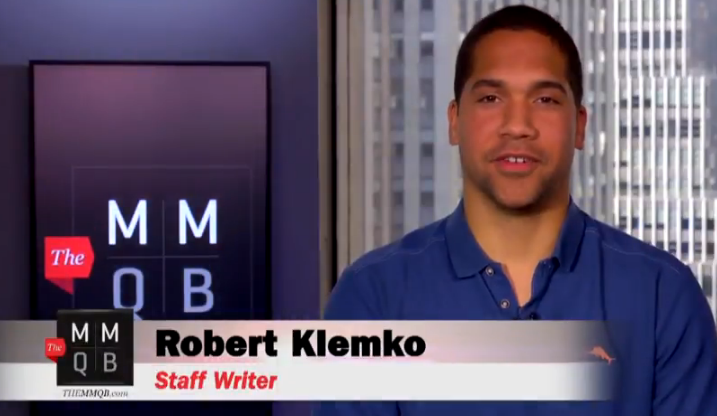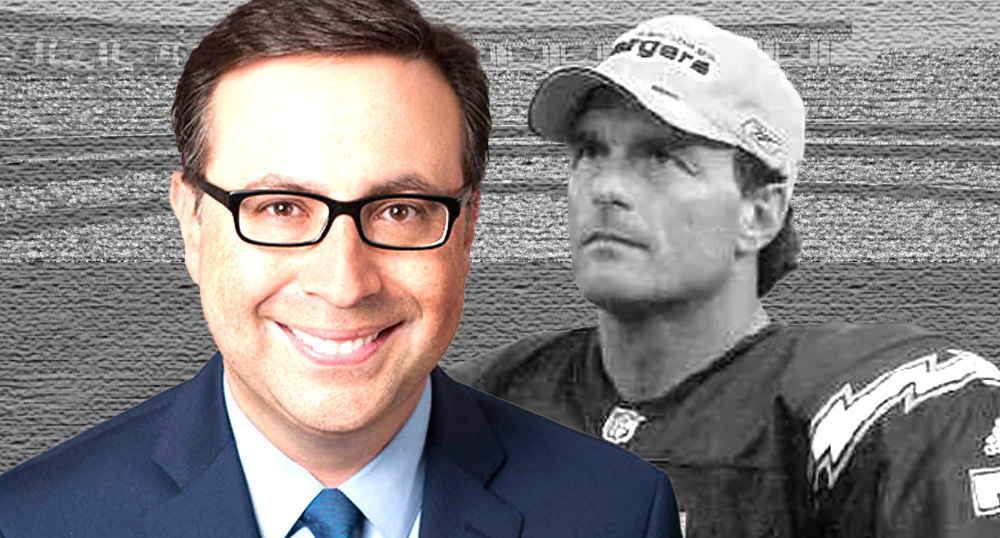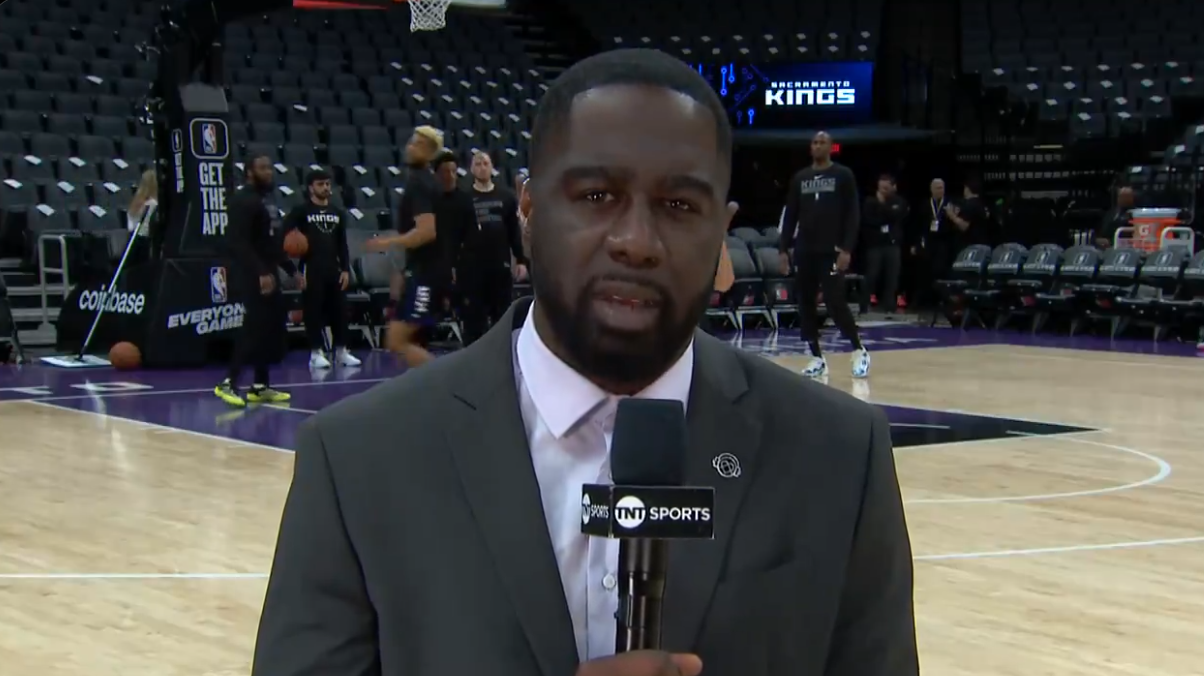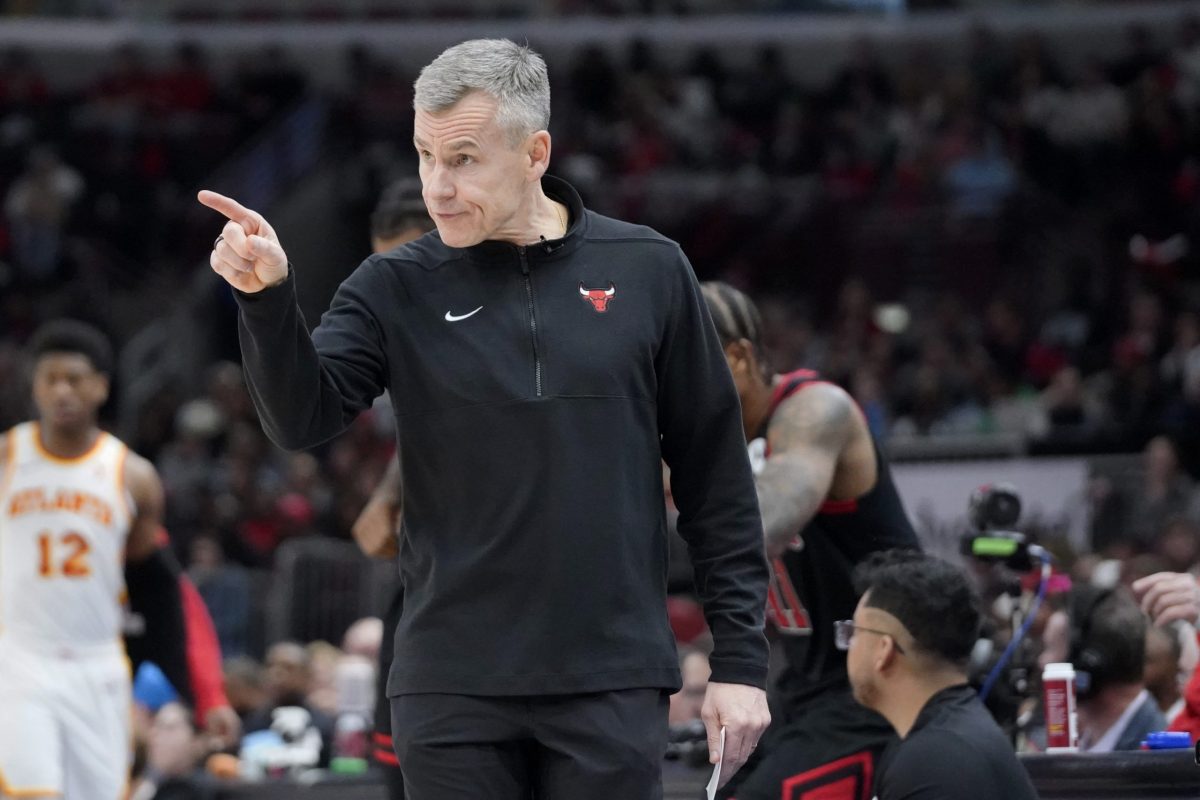ESPN analyst Cris Carter’s comments at the 2014 NFL rookie symposium suggesting that rookies should “get a fall guy” caused quite a stir when they emerged this weekend (suggesting poor judgement on the part of everyone involved), but one reporter knew of them when they happened: Robert Klemko of Sports Illustrated‘s The MMQB. Klemko was the only media member given primary access to that rookie symposium, and his report on it largely praised the comments of Carter and Warren Sapp without discussing Carter’s controversial “fall guy” comments.
Klemko discussed why he didn’t report those comments Monday on Twitlonger, saying the NFL retroactively declared them off-the-record and he agreed:
Two years ago I attended the NFL symposium as the first writer to gain near-unfettered access to the rookie orientation event. (http://mmqb.si.com/2014/07/09/nfl-rookie-symposium-part-2) I agreed to the NFL’s condition that I would not enter the small group sessions, and there would be one or two things the league could look back on and say, ‘that was off the record.’ When the public relations or marketing arm representing an org or a player facilitates access such as this, there is often a verbal agreement that certain details observed in the course of reporting may be negotiated for omission. Personally, I only agree to these omissions when the subject matter is immaterial to what I gather is the larger point of the story, which, in the case of the symposium, I believed Carter’s comment was. Having interviewed numerous people involved with previous symposiums, on and off the record so as to give NFL employees the opportunity to honestly critique the new set-up, I was satisfied that Troy Vincent’s vision of involving ex-players was proving fruitful, even considering the risk of someone like Carter saying something stupid to the rookies. The sources of actual constructive advice, I judged, far outweighed Carter’s comment. When Carter said the words, “have a fall guy” in what was a light-hearted and animated session that at times made league employees in attendance cringe, the NFL’s Kim Fields looked my way and said, “that can’t go in the story.” I was torn. I take pride in reporting every detail, even at the risk of damaging relationships. Earlier in my career I profiled a player who had a string of unreported violence in his life. Knowing these were not details the player or the agent wanted public, I published them anyway, because I judged those facts material to the arc of that player’s journey (the agent hasn’t spoken to me since).
I loved the Carter quote for how outlandish and idiotic it was, but I didn’t see it as emblematic of the symposium. Upon reflection, I suppose that detail might have highlighted the minor perils of the symposium’s transformation under Vincent. Maybe it was a mistake not to run it, but I had made an agreement which boiled down to this: Tell 95% of an untold story, or none of it. I chose 95% because I wanted to take readers someplace they’d never been, and I wanted to continue getting access to these sorts of events. The reality is nearly all of us reporters make these concessions. Consider the very story that brought Carter’s comment to light. In it, the Fainaru-Wada brothers write:
“Get yourself a fall guy,” Borland says one of the former players advised. The former player, whom Borland declined to name, told the rookies that if they ran into legal trouble, their designated fall guy would be there to take the blame and, if necessary, go to jail. “‘We’ll bail him out,'” Borland says the former player assured them.
Armed with that information, the brothers could have easily figured out who the player was by interviewing members of that class, but they didn’t. Borland didn’t want them to. He didn’t want his name attached to a story that outed Carter, and ESPN obliged, likely because that specific detail wasn’t material to the Borland story arc, and the benefit of pursuing it wasn’t worth betraying Borland.
Through the sheer incompetence of the NFL, which posted the video of Carter’s talk online, my decision to withhold that info has now come to light. If faced with the same decision again, I would have to think long and hard about the choice. Bottom line: I need to be tougher.
This isn’t the first time Klemko has been squarely in the public eye as last year he was arrested twice – first while covering the situation in Ferguson and second being charged with with battery and criminal tresspass after a fight with a cab driver. The latter earned him a four week suspension at Sports Illustrated.
There are a lot of questions raised by how Klemko portrays this. Yes, many pieces involving access often involve a negotiation of what details can and cannot be reported, and yes, some details are sometimes omitted in service of a larger story. Sometimes sources have second thoughts, and sometimes quotes are pulled after the fact. Moreover, there’s no universal standard for what can and cannot be termed off-the-record in the reporting of a story; many media organizations and individual journalists have their own policies, which all tend to differ in some ways.
However, allowing a league’s PR division to retroactively determine comments made in a large-group setting to be off the record is far more unusual, and it creates questions both about why SI and Klemko agreed to these conditions and why they adhered to them in the face of a comment as clearly newsworthy and stunning as Carter’s was.
One can make the argument, as Klemko does, that access to the symposium and the overall story of it was worth omitting Carter’s quote. However, from a news standpoint, that argument doesn’t seem all that worthwhile. Carter’s comments may have been “outlandish and idiotic” and made during a “light-hearted and animated session,” but they’re by far the most newsworthy thing that happened during that symposium, especially given the NFL’s ongoing issues with off-field incidents. Many would have decided to run them despite the league’s opposition and damn the consequences. Klemko and SI aren’t necessarily required to do that, but it’s worth asking why they didn’t, and if the perceived value they got from maintaining their relationship with the NFL here was worth it.
Klemko’s decision not to report Carter’s comments speaks to a desire to preserve NFL access, as he admits, and some might argue that fits into a larger trend with SI and The MMQB. Site founder Peter King delivered a multi-tweet explanation why he supported the Klemko decision on Monday night. (It’s also notable that King has reported incorrect details obtained from league sources at least twice, and has later apologized in both cases.)
It raises a question of the value of access; is staying on the NFL’s good side and reporting 95 percent of what happened at a particular event valuable if it hurts your site’s overall credibility, or is providing “sports news without access, favor or discretion” (Deadspin’s original motto) a better approach? Access can sometimes be incredibly important, and it can lead to great stories. Sacrificing particular quotes or facts to preserve future access isn’t always the wrong choice, either. Still, many would say ignoring an extremely newsworthy moment to preserve future access isn’t worthwhile.
Moreover, leaving out Carter’s exact quotes is controversial enough, but it’s also notable that Klemko’s piece doesn’t even really suggest that Carter was controversial during his speech. Klemko calls the comments Carter and Sapp made “as honest and energetic as the symposium gets,” and says they delivered “a message of practicality.” The only suggestion of anything questionable during Carter’s speech is that he declined to offer advice on transitioning beyond football, saying “This is the best job you’re ever going to have.” Beyond that, Klemko’s piece is full of praise for Carter and Sapp. Sure, as he wrote on Twitlonger, this may have seemed minor at the time, but Klemko’s news judgement can certainly be questioned if he thinks seemingly-serious advice for players to “get a fall guy” from a famed player and current broadcaster is worth glossing over.
Deciding to not report Carter’s quotes is problematic in its own right, but not even mentioning that some of Carter’s comments were controversial is even more questionable. That likely could have been done in some fashion even while abiding by the league’s restrictions. At the very least, if Klemko realized how problematic Carter’s comments were, he could have pulled his “message of practicality” and “honest and energetic” praise remarks. Leaving that in suggests that this wasn’t just about maintaining access; it suggests that Klemko really didn’t realize how important what he agreed to leave out of this story was.
Klemko is far from the only one whose actions can be questioned here. He’s not wrong that Fainaru-Wada and Fainaru could likely have found out Carter’s identity with a little digging (leading to some ESPN-on-ESPN crime). He’s also not wrong that the league was silly to publish this video on their own website if they wanted Carter’s comments kept secret, and NFL PR deserves to be blasted for putting Klemko in a tough position and trying to pull Carter’s comments retroactively.
Still, that doesn’t necessarily justify Klemko’s decision to give the league off-the-record takebacks at a large event and ignore the most noteworthy comments made during the event he was covering. It’s appreciated that he’s explained his reasoning, though; that should allow readers to see where he’s coming from and what kind of editorial decisions he’s making in the names of preserving access, and they can then decide for themselves if his actions are valid or not.
Klemko’s actions here may have been acceptable by his standards, by SI’s, and by some readers, and that’s fine. For those more skeptical, though, his actions raise questions about his ties to the league, and just how far he’s willing to go to preserve future access. That’s already one of the major criticisms of his editor’s work and this development will only further enhance that reputation for King and other SI NFL writers. He’s right that most pieces with access involve a negotiation of what can and cannot be published. Readers can decide for themselves if he made the right call in this particular negotiation, and if that bodes well for his credibility going forward or not.







Comments are closed.